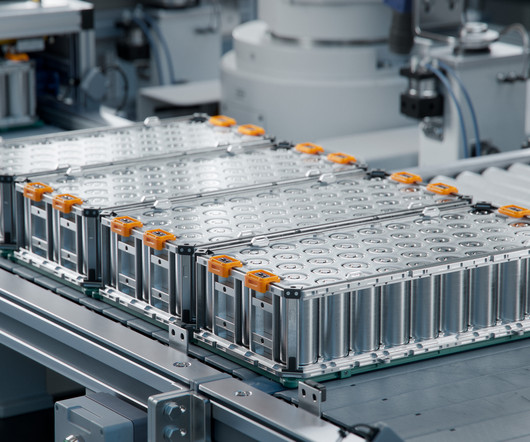New aqueous rechargeable lithium battery shows good safety, high reliability, high energy density and low cost; another post Li-ion alternative
Green Car Congress
MARCH 8, 2013
Schematic illustration of the aqueous rechargeable lithium battery (ARLB) using the coated lithium metal as anode, LiMn 2 O 4 as cathode and 0.5 The safety and reliability is greatly improved when compared with conventional lithium ion batteries. Lower cost of production, using well-known materials. Wang et al.












Let's personalize your content